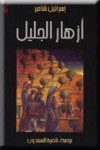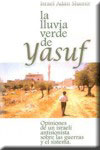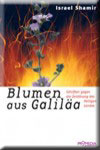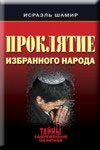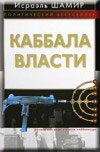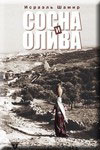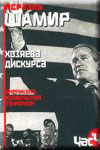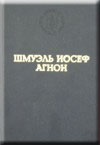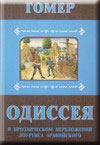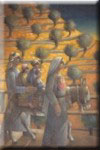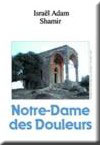Clarity Press, Inc. (2008) cover price $16.95, 192 pages
Review of ZIONISM, MILITARISM AND THE DECLINE OF US POWER by James Petras
Ken Freeland
“If names be not correct, language is not
in accordance with the truth of things...What the superior man requires is just
that in his words there may be nothing incorrect."
(Analects [of Confucius]
XIII, 3, tr. Legge)
The hegemonic influence of Zionist-Israeli forces over America's foreign policy, particularly Middle East policy, is a phenomenon without historical precedent. While right-wing radicals, with their focus on patriotism and constitutional values, set off early alarms about this perceived foreign domination, the Left pretty much slept through its insidious ascent to power. The American Left, indeed, has a long and unfortunate history of giving a free pass to Israel, reserving the whole of its diatribe for imperialists of the indigenous variety. (As James Petras makes clear again and again, this is a predictable result of the antiwar movement's frequently pro-Israel leadership, and the ubiquitous Zionist-liberal influence within it.)
For the traditional Left, this emergence of a Zionist power elite within the United States presents a significant theoretical problem... it really does not follow from the normal Leftist-materialist construction of the political world, and so it tends to be just ignored. The popular antiwar movement slogan “no war for oil” is its residue: the Left is happy to pin the war tail on the donkey of Big Oil, a traditional bogeyman, and one which fits neatly into a materialist paradigm. But implicate Zionist Israel? Fuggedaboudit!
This dismal record of “progressives” is what makes the work of James Petras unique. He is an indefatigable Leftist whose widely published anti-imperialist oeuvre covers some fifty years of contributions to some very prestigious journals. He once shared with me that he broadcasts a 30-minute radio program that is heard weekly in Uruguay. For a professor emeritus (retired), James Petras is one heck of a fireball:
In 2006 he broke new ground with the first installment of what I am going to call his current trilogy: The Power of Israel in the United States. Fully a year before Walt and Mearsheimer would critique this same phenomenon from an Establishmentarian perspective in their The Israel Lobby and US Foreign Policy,” Petras was exposing it from the Left. While other critics considered themselves cutting-edge for attacking the “neo-conservatives” (neo-cons), this did not suffice for James Petras... after all, the roots of neo-conservatism are not conservative at all, but Zionist....and so he coined the term “Zion-con” to emphasize this analytic difference. Where Walt and Mearsheimer, in their effort to encompass the wider phenomenon of Zionist organization and power in America, would stretch the term “Israel Lobby” to cover a multifarious network of Zionist-Israel' s promoters, many of whom do not engage in actual lobbying, Petras approaches the same phenomenon with fresh conceptual clarity, naming it the Zionist Power Configuration (ZPC), which has become the bedrock of his further analysis -- “a complex network of interrelated and informal groupings, operating at the international, national, regional and local levels, and directly and systematically subordinated to the State of Israel, its power holders and key decision makers.”(p.46)
The second work in this series, Rulers and Ruled in the US Empire,was published a year ago. While that work is concerned primarily with Latin American and other rulers, examining the extent to which they really represent a political challenge to US imperialism, several chapters continue his analysis of the ZPC, which he says “far exceeds the resources of AIPAC or the 'the Lobby.'”
As I reflect on Petras' series of books dealing with this subject, I am reminded of the hurricane I recently weathered: like its pulsating, blistering winds, each of Petras' attempts to grapple with this problem is more sweeping and intense than the last, sweeping the moribund detritus off the political landscape and leaving us with fresh, clear language that perfectly corresponds with the political realities we face, but were formerly unable to name. As Confucius says, the first step to political reform is calling things by their proper names. And in Zionism, Militarism, and the Decline of US Power, Petras' Zhèngmíng (the Chinese word for the Confucian “rectification of terms”) keeps pace with fast-moving political developments: Here we meet with the Zion-libs (as opposed to neo-libs); they are no more grounded in traditional liberalism than the Zion-cons are in conservatism. As to the Zion-cons, they have transmogrified into Zion-fascists:
There is no transcendent event that defines the moment in which Zion-Conservatism became Zion-Fascism. The transition was an evolutionary process during which racism, militarism and authoritarianism developed a mass community base, took hold over time, and became the definitive modus operandi of the ZPC.
Like earlier fascist movements, Zion-fascism subscribes to racialist doctrines of knowledge. According to Zionist epistemology only Jews can (if they dare) criticize Jews as knowledge of Jewry is monopolized by a closed communally defined people. This Zion-fascist theory of knowledge is buttressed by the frequent utterances of progressive or leftist Zionists who frequently dismiss or warn non-Jewish writers that they enter the 'Jewish' debate at their peril. (p.41)
Much of this latest book anatomizes the political integuments that connect the ship of state to the ZPC, who then navigate it into the stormy sea of Zionist bellicosity. But considerable space is also devoted to reexamining the long history of US provocation of its “enemies” as a pretext for imperial war, and to which the events of 9/11, according to the author, were no exception.
There are two schools of thought within the 9/11 Truth movement: One of them believes that the events were a false flag operation in which some US government had a direct hand. This is the “Made It Happen on Purpose (MHOP)” school. Its counterpart believes that The US government became aware of the 9/11 plan, but allowed it to happen rather than trying to intercept it so that a pretext for Middle East wars could be provided – the Let it Happen On Purpose” (LHOP) school of thought. Petras' view is an interesting hybrid, where the US government deliberately politically provokes it into happening, then allows it to happen and covers up the role of its own and allied facilitators (the Israelis) in the interest of targeting Afghanistan, Iraq, etc. While my own predilections are of the MHOP variety, for reasons we do not have the space to consider here, I can very much appreciate the detailed exposé Petras provides of US government and Israeli support for the 9/11 actions. Whether or not a widening of US militarized imperialism was the actual motivation for causing, provoking or allowing these criminal events to take place, it is unarguable that this is how those events have been politically exploited.
More conceptual groundbreaking is done in his chapter called “Military-driven vs. Market-driven Empire.” Here he cogently makes the case that America's costly militarized empire building (at Israel's behest) is costing it much and gaining it little, while Japan, Russia, China and other market-driven imperialists are making tremendous gains with their more constructive approaches. Anyone not familiar with his earlier work might suspect that Petras is advocating the more profitable market-driven empire in place of this costly military-driven one. So I asked the author to respond to a hypothetical reader who might have this concern. I'll let him speak for himself:
“Opposing the Iraq war and war threats to Iran is in no way implicitly supporting any imperialism. .The book argues that there are two paths to empire via capital expansion and via military conquest . One is more destructive the other is more exploitative of labor. Neither is progressive and both must be fought. However, when US imperial power is used –by Zionists- to serve a foreign power-Israel- we have an additional problem: to recover our national independence so that the American people can decide our policies best.”
A clear and reassuring answer, yet I wish he had been clearer about the “both must be fought” aspect in this book for the benefit of new readers. Of course, anyone who doubts it only needs to review his earlier years of published solid opposition to market-driven imperialism in Latin America and elsewhere.
The threat of the ZPC to basic American democratic values and to the integrity of the antiwar movement is clearly spelled out in the book's final pages. As a lifelong antiwar activist myself, I cannot too strongly concur with this timely observation:
The collapse of the US peace movement, the lack of credibility of many of its leaders and the demoralization of many activists can be traced to strategic failures: the unwillingness to identify and confront the real pro-war movements and the inability to create a political alternative the the bellicose Democratic Party.
Anyone with in an interest in this problem is encouraged to read my recent report about the subversion of the National Assembly against the War (a recent effort to reunify our fractured antiwar movement) by these very same Zionists, who imposed their “war for oil” slogan over the democratic decision of the Assembly to identify the machinations of the Zionist lobbies as a primary cause (Petras spends a great deal of time in his book debunking the “war for oil” canard, as have other cutting-edge writers, such as Jonathon Cook, Israel Adam Shamir, etc.)
All three books in this trilogy are published only in paperback edition, at low prices affordable to working people. Anyone who has come to understand the problem of Zionism in the US political arena, and anyone who is coming to understand it, will not find a better guide than this irrefragable sociologist James Petras, the C. Wright Mills of our times.



